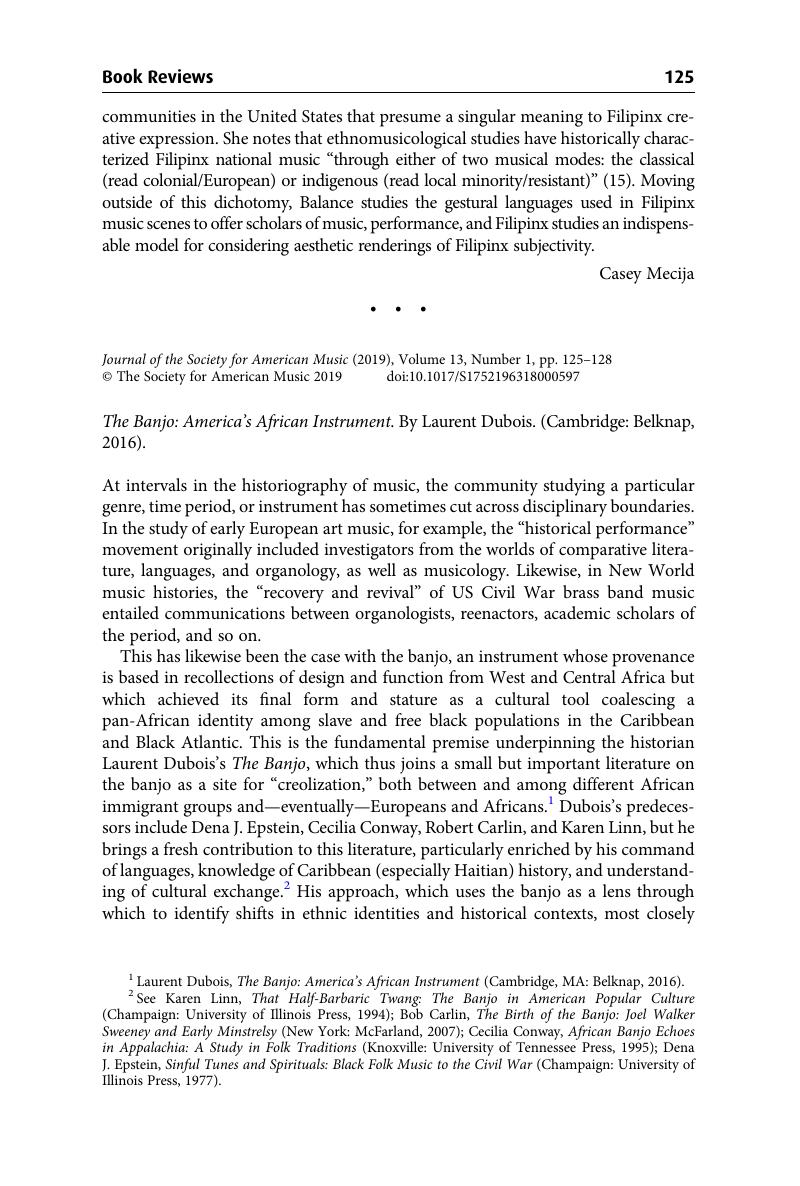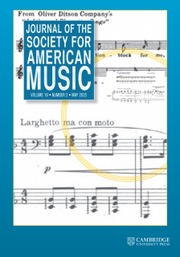No CrossRef data available.
Article contents
The Banjo: America's African Instrument. By Laurent Dubois. (Cambridge: Belknap, 2016).
Published online by Cambridge University Press: 18 February 2019
Abstract

- Type
- Book Review
- Information
- Copyright
- Copyright © The Society for American Music 2019
References
1 Dubois, Laurent, The Banjo: America's African Instrument (Cambridge, MA: Belknap, 2016)CrossRefGoogle Scholar.
2 See Linn, Karen, That Half-Barbaric Twang: The Banjo in American Popular Culture (Champaign: University of Illinois Press, 1994)Google Scholar; Carlin, Bob, The Birth of the Banjo: Joel Walker Sweeney and Early Minstrelsy (New York: McFarland, 2007)Google Scholar; Conway, Cecilia, African Banjo Echoes in Appalachia: A Study in Folk Traditions (Knoxville: University of Tennessee Press, 1995)Google Scholar; Epstein, Dena J., Sinful Tunes and Spirituals: Black Folk Music to the Civil War (Champaign: University of Illinois Press, 1977)Google Scholar.
3 Laurent Dubois, “Faculty Bookwatch—The Banjo: America's African Instrument,” https://youtu.be/a2ccs7F--6w?t=44m31s.
4 Foundational works articulating this model include Roger Abrahams, D., Singing the Master: The Emergence of African-American Culture in the Plantation South (New York: Penguin, 1994)Google Scholar; Thompson, Robert Farris, Flash of the Spirit: African and Afro-American Art and Philosophy (New York: Random House, 1984)Google Scholar; and Gilroy, Paul, The Black Atlantic: Modernity and Double-Consciousness (Cambridge, MA: Harvard University Press, 1993)Google Scholar, among others.
5 The reference is both to Haitian Vodou, to singers taking the stage name Trois-Feuilles, and to a face carved on the fingerboard of a Haitian banza, donated by the nineteenth-century scholar Victor Schoelcher to the Museum of the French Music Conservatory and recovered via the detective work of Jagfors and Ross, among others.


